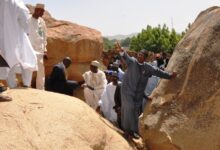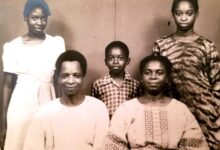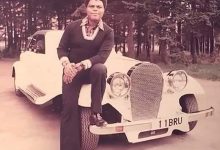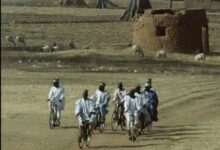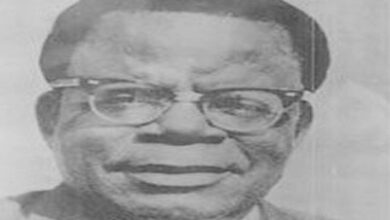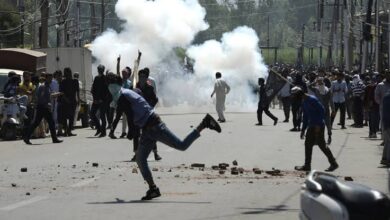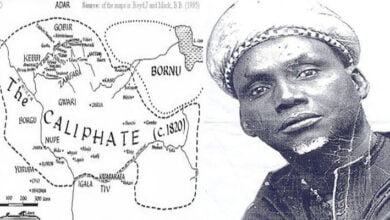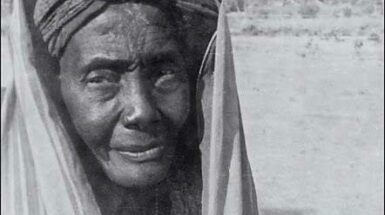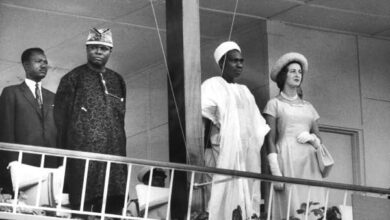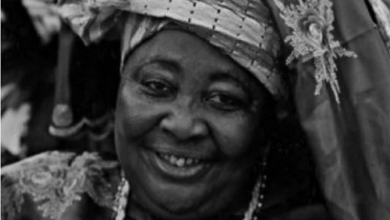Mallam Aminu Kano, the man whom several structures are named after in Nigeria

A progressive Muslim, Mallam Aminu Kano, was not one to allow business as usual. In politics, he fought external colonial domination and helped achieve freedom for Nigeria.
He also fought internal oppression so that forced labor by the Emirs and subjugation by local oppressors got stopped.
He was also a lifelong advocate for female education working for their full political emancipation.
Thanks to his campaigns and advocacy, subsequent local government reforms ensured that traditional rulers were removed from direct administration and controlling the local courts, native police and the prisons.
With women in northern Nigeria not having the right to vote during the first republic, the 1979 Constitution of which Mallam Aminu was an architect, guaranteed universal adult suffrage for all, regardless of sex decades before the Beijing Declaration on Women.
For almost four decades he challenged colonial administration and the emirate system. He championed the cause of the common people and women through teachers’ organizations and other existing structures, then as leader of the main opposition party, the Northern Elements Progressive Union (NEPU) from 1950 until the end of the first republic in early 1966.
After the long period of military rule (1966-1979), during which he was a voice of national unity, he again entered the political process as a constitutional committee member in the second republic and then as the leader and presidential candidate of th e Peoples Redemption Party (PRP), the true socialist party from the lot.
Kano was born to the family of an Islamic scholar, Mallam Yusuf of the scholarly Gyanawa Fulani clan, who was a mufti at the Alkali court in Kano.
He attended Katsina College and later went to the University of London’s Institute of Education, alongside Sir Abubakar Tafawa Balewa.
He earned his teaching certificate after completing his studies at Katsina College and subsequently became a teacher; he started teaching at the Bauchi training College.
In 1948, he became the head of the teacher training center in Maru, Sokoto and was also the secretary of the Northern Teachers Association. He established an organization to improve the quality of Qur’anic schools in the north.
He was one of the country’s delegates to the UN in the wake of Nigeria’s independence in 1960.
The upheaval that marked the First Republic ushered in a military coup on January 15, 1966. Kano later served in the military government of General Yakubu Gowon as Federal Commissioner for Health.
Thanks to Mallam Aminu Kano that people are no longer forced to farm any feudal land without pay. Taxes such asharaji (formal tax) and jangali (cattle tax) were abolished.
The children of talakawas could acquire education to whatever level they desired and political positions were opened to all; these were two privileges previously reserved for the aristocrats and feudal class exclusively.
Aminu Kano was found dead on April 17, 1983 by his wife Hajia Aishatu having suffered a stroke as a result of a bout of cerebral malaria.
He was buried according to custom on the same day in his house.
The 63-year-old left behind a house which is now the Centre for Democratic Research and Training under the management of Bayero University.
Fitting then as tribute, Prof. Chinua Achebe wrote “Nigeria cannot be the same again because Aminu Kano lived here.”
The Mallam Aminu Kano International Airport, Aminu Kano Teaching Hospital, Aminu Kano College of Islamic Studies are all named after him in Kano State.
Written by Michael Eli Dokosi
Questions? Advert? Click here to email us.



